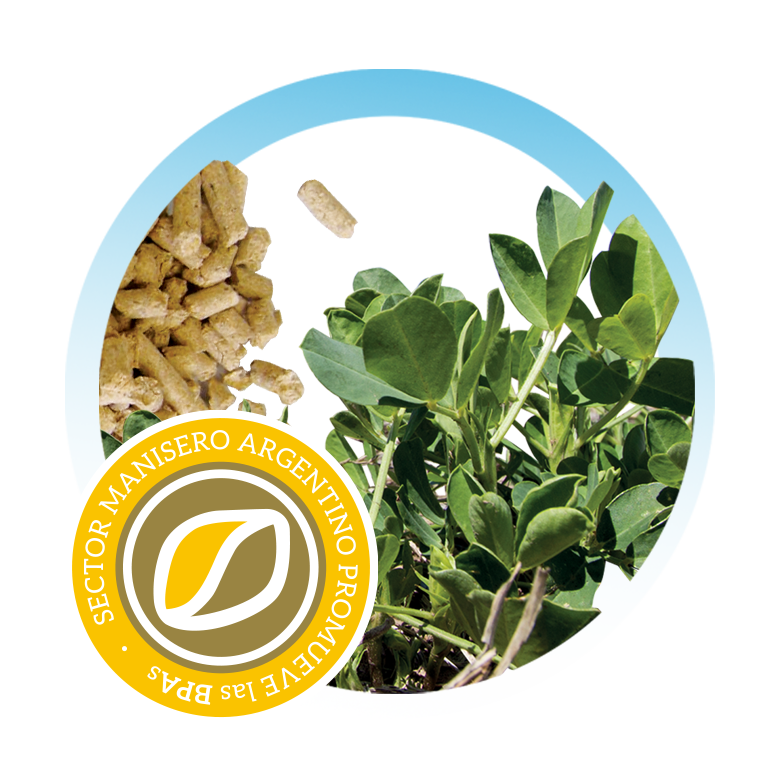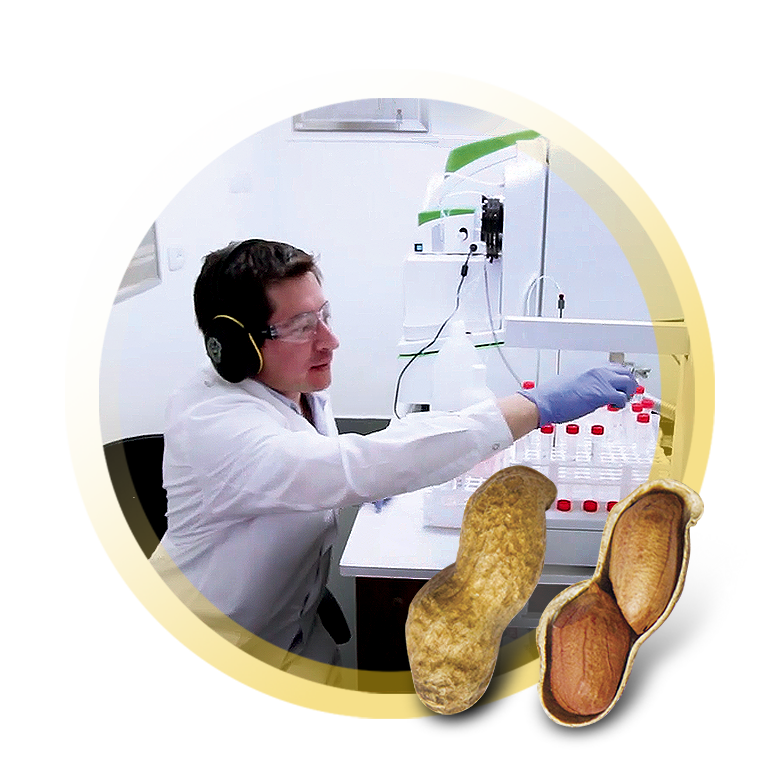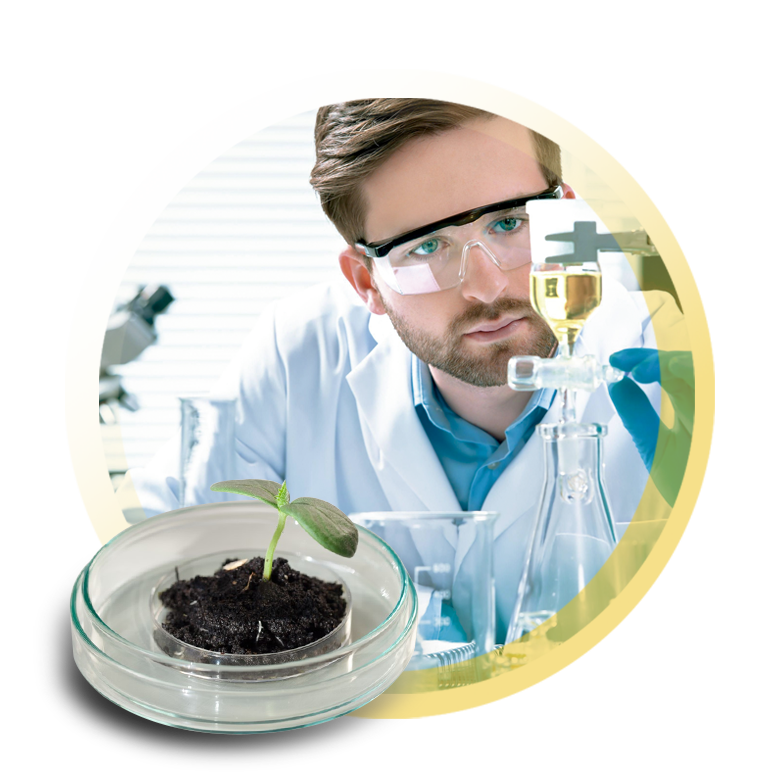RESEARCH AND DEVELOPMENT
The peanut sector invests heavily in farming and processing facilities by using the best state-of- the-art technology available worldwide
R + D
Peanut companies dedicate substantial investments in R&D, mainly through the Argentine Peanut Foundation. Since 2001, the Foundation has funded more than 80 research projects.
360° Economy
The peanut industry has transformed itself into a 360° economy: peanut shells are used as a source of renewable energy, fodder, soil mulch or to manufacture sustainable construction materials, among other uses.
Promoting the sustainability of the peanut productive system has been and will continue being a common goal for all the members of this cluster, in the private and public sector.
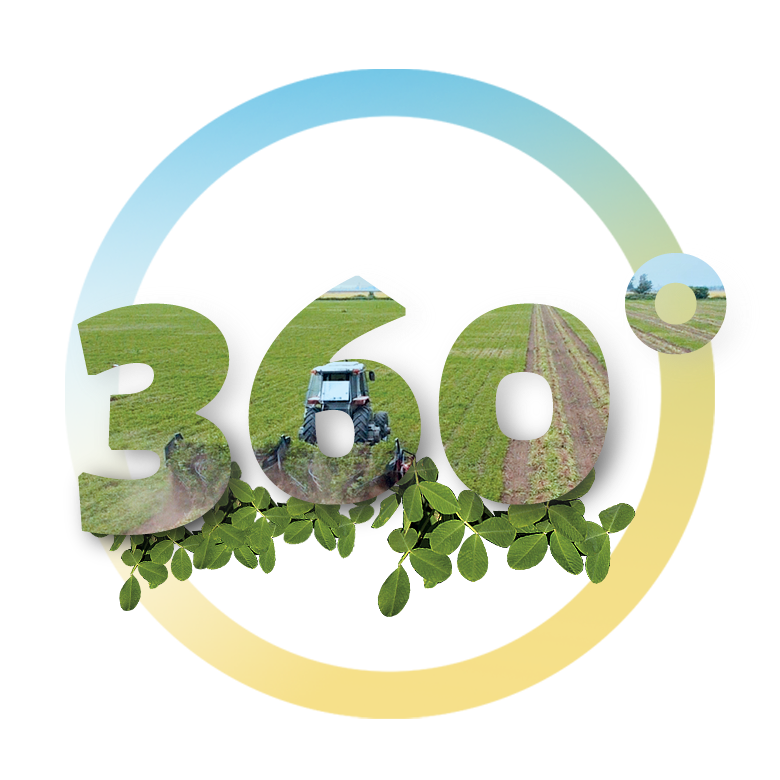
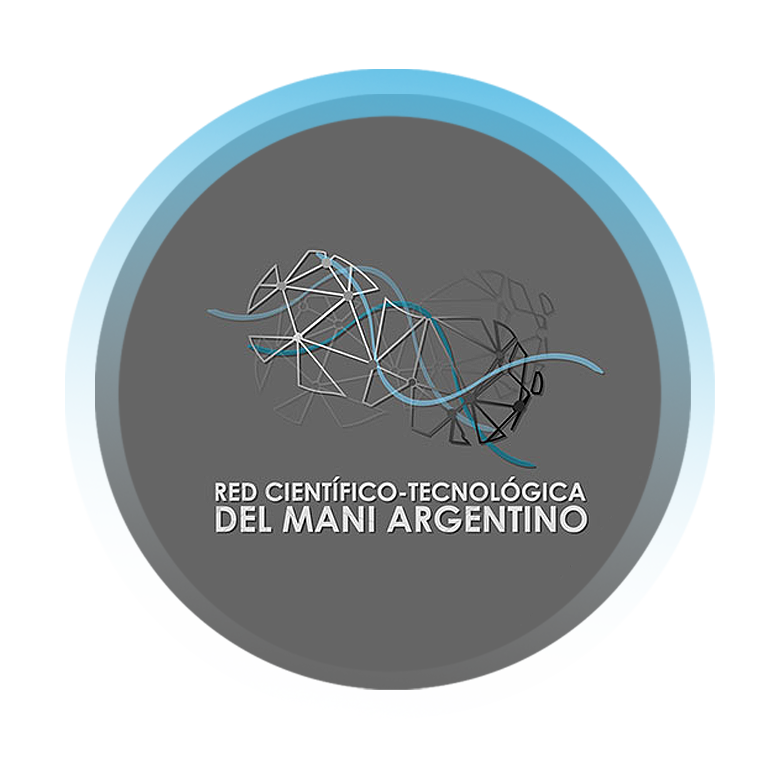
“We work towards sustainability in the global economy, to generate economic value for the industry, towards research excellence and the advancement of highly qualified human resources in the science and technology areas of the peanut sector.”
Scientific-Technological Network of Argentine Peanuts
The Argentine Peanut Chamber and the FMA are members of the Argentine Peanuts Scientific-Technological Network, an organization formed by institutions devoted to research, development, innovation, production and marketing activities of peanuts mostly based in the Province of Córdoba.
It is a dynamic and efficient peanut science and technology entity, which works towards meeting the needs of the peanut industry, detecting development opportunities and contributing to managing state-of-the-art technology projects across all stages: demand, assessment, financing and execution, with a view to strengthening existing institutions.
Every institution in the NETWORK contributes with knowledge, skills, information, research, innovation and development that according to their nature, they achieved or acquired individually in the productive and scientific development of peanuts.
- Agricultural Engineers Association of General Cabrera
- Argentine Peanut Foundation
- Argentine Peanut Chamber
- National Agricultural Technology Institute (INTA)
- Center of Excellence in Products and Processes of Córdoba (Ceprocor)
- National University of Córdoba
- National University of Río Cuarto
- National University of Villa María
- Catholic University of Córdoba
- National Technology University
- National Council of Scientific and Technical Research CONICET
- Ministry of Industry, Trade and Mining of the Province of Córdoba
- Ministry of Science and Technology of the Province of Córdoba
- Botanical Institute of the Northwest (IBONE)
- CIRMA
SUSTAINABILITY AND GAP
The peanut industry has transformed itself into a circular economy: peanut shells, the main residue of this productive process, are used as a source of renewable energy, fodder, soil mulch or to manufacture sustainable construction materials, among other uses.
In Argentina, there are currently five renewable power plants that use peanut hulls. They are self-sufficient for their facilities and even supply power to their communities. Moreover, there are countless private, public and mixed projects underway that manufacture eco building blocks, eco plywood, etc.
With regards to farming practices, Argentine peanuts are produced under Good Agricultural Practices (GAP). Such practices entail the “application of available knowledge to the sustainable use of basic natural resources for production, of innocuous and healthy agriculture products, while promoting economic feasibility and social stability.” (Buenas prácticas agrícolas para la producción de maní, Pedellini y otros, 2012)
GAP applied to peanuts include rotations of at least 4 years, with direct seeding or minimum tillage, using cover crops upon crop emergence.

The CAM and the FMA work actively in collaboration to strengthen, expand and maintain an updated Good Agricultural Practices (GAP) Guideline for peanut crops, disseminate them and encourage the adherence of farmers.
Additionally, the CAM promotes the Good Agricultural Practices Program of the Ministry of Agriculture and Livestock of the Province of Córdoba. The Program offers a financial incentives system for farmers who adopt the recommendations.
Promoting the sustainability of the peanut productive system has been and will continue being a common goal for all the members of this cluster, in the public and private sector.
